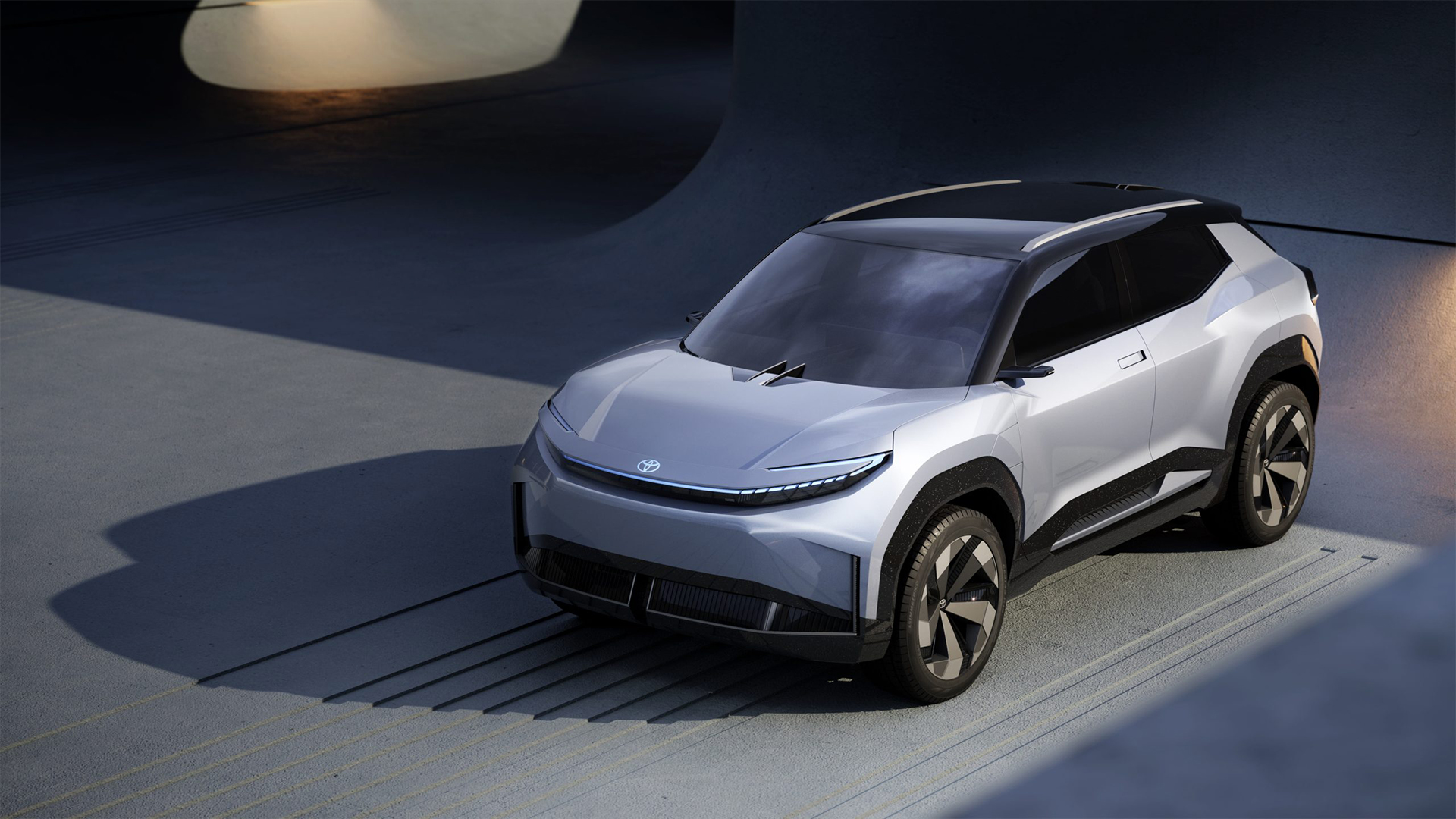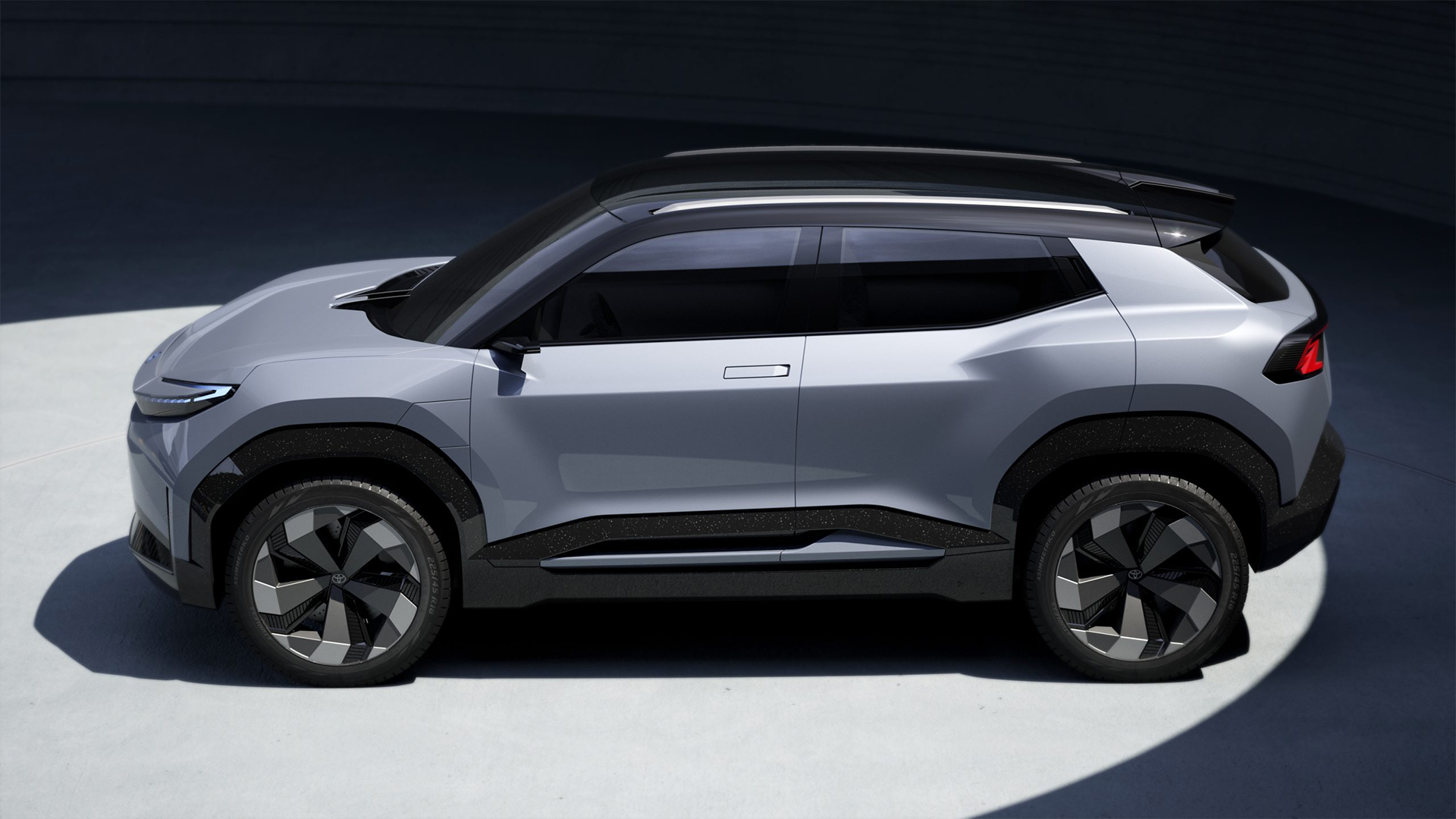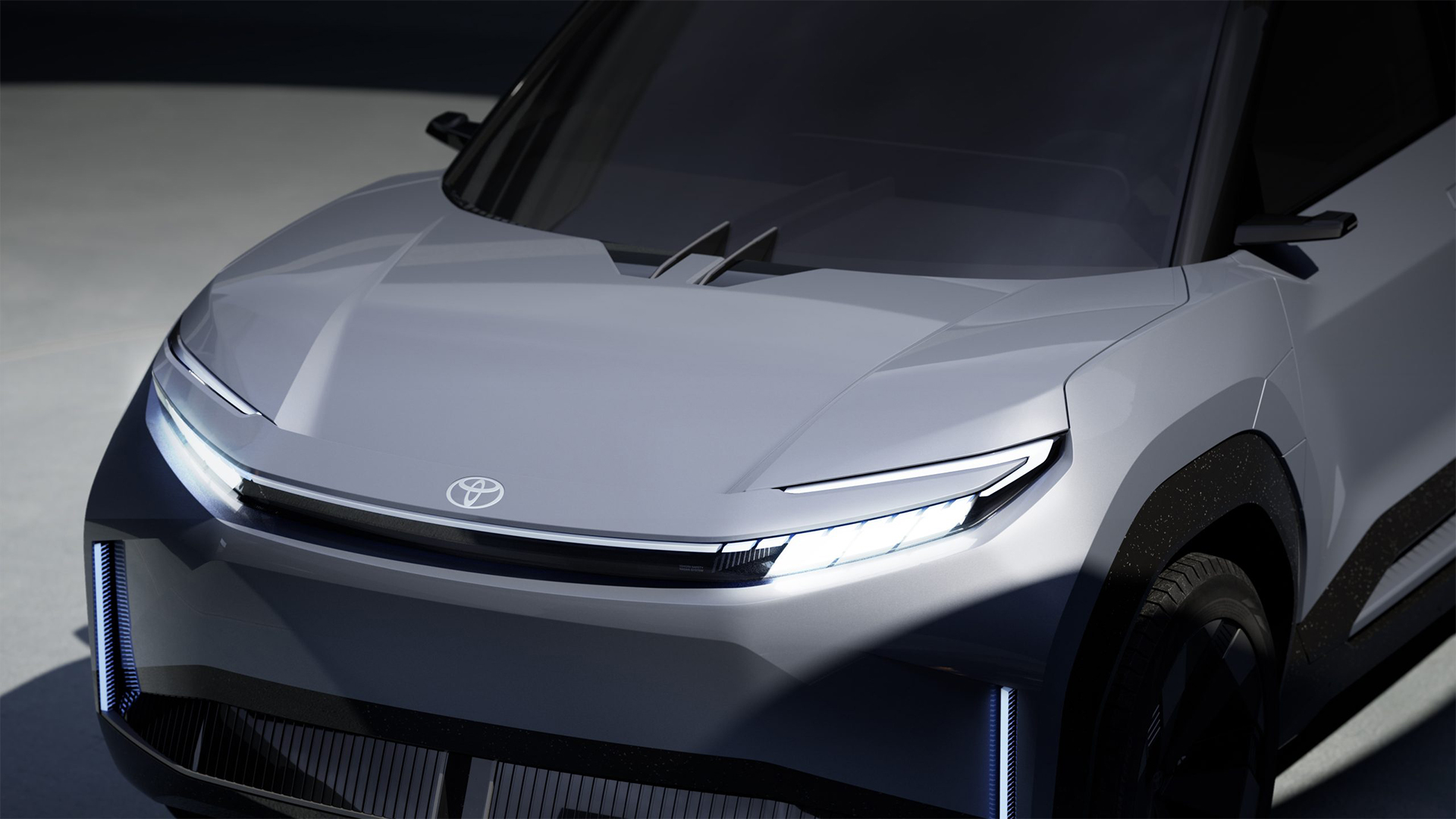
In a very Cupertino tech company move, Toyota recently hosted its Kenshiki forum in Brussels, which aims to preview its future battery electric vehicle technology, without the distractions of a traditional motor show.
It was here that it unveiled several new concepts that provide a good look at what we can expect in terms of upcoming EVs form the Japanese marque. The Urban SUV concept looks set to be the “most compact and accessible” model in a planned six-vehicle EV line-up that Toyota will have on sale by 2026.
The company says this upcoming model will do battle in the hotly-contested B-segment, proving slightly smaller than the recently released bZ4X EV model and rivalling the Volvo EX30 in terms of stature and the space it offers on the inside.
According to its accompanying press release, Toyota is keeping full details locked down until it reveals a production version of its concept, but says it will be offered with a choice of two battery sizes and either two or four-wheel drive.

In Toyota's own words: "Both front and all-wheel drive powertrains will be available, with AWD being a key part of Toyota’s product DNA. Similarly, the production model will offer a dual battery strategy: customers will be able to choose between two battery options, with different capacities to suit their needs and priority for accessibility or driving range," the company reveals.
If it is to rival Volvo’s recently announced EX30, the pricing strategy has to be right, meaning a potential starting figure of £32,000 or less could be on the cards.
Unfortunately, the concept images failed to unveil what the interior would look like, but Simon Humphries, Chief Branding Officer, Head of Design, Toyota Motor Corporation highlighted that the company’s AreneOS will play a major part, potentially hinting that its advanced voice assistant and suite of interior technologies could appear.
Is Toyota finally committing to pure EV tech?

Along with Mazda, Toyota has often been criticised for its slow push into fully electric vehicles, choosing to focus instead on hybrid technology, as well as pursuing alternative options, such as hydrogen fuel cell power.
Its announcement in Brussels confirms that pure EVs will at last be a focus, with six new models in the pipeline in the coming years, increasing to 15 if you include sister luxury brand Lexus and collaborators Suzuki.
That said, Yoshihiro Nakata, President and CEO, Toyota Motor Europe, stated that the company will "continue to offer multiple carbon reduction technologies" but it will "steadily increase the number of zero-emissions vehicles we offer to customers".
Reading between the lines, it appears Toyota is definitely not done with its hydrogen experimentation, stating that it still has a "unique role in contributing to the decarbonisation of Europe's mobility", while hybrid systems will still be introduced to existing models, such as the upcoming Hilux.
Seeing as many rivals are already rapidly expanding their EV portfolios ahead of 2026, while numerous EV-only brands are coming online from China and beyond, Toyota's move could be too little, too late.







